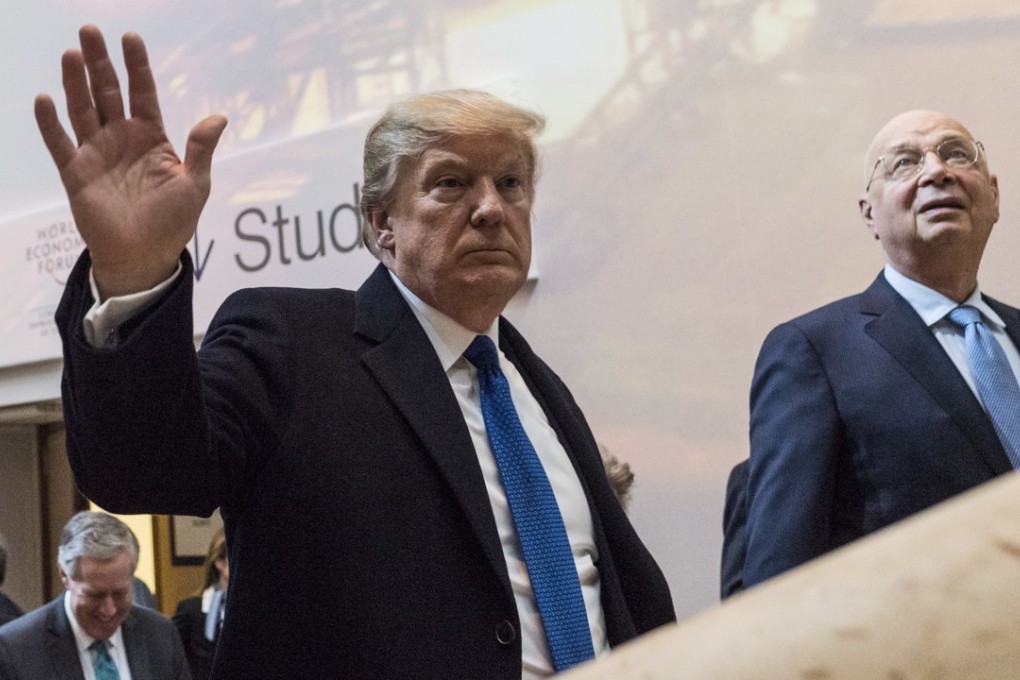Donald Trump arrives in Davos, selling his message of ‘peace and prosperity’ – but is the rest of the world buying it?
In the lead-up to Trump’s arrival, other leaders at the meeting have argued against any drift toward protectionism in the global economy

Armed with his “America First” philosophy, US President Donald Trump arrived in Switzerland on Thursday to tout his economic agenda and lure foreign investment at a global summit that stresses free trade and international cooperation.
“We’re very happy to be here,” Trump said as he arrived at the World Economic Forum. “The United States is doing very well, and will continue to do well and this will be a very exciting two days.”
He said he was bringing a message of “peace and prosperity” to the gathering of world leaders, business executives and celebrities.
Asked whether he would be supported at the forum, Trump said: “I already am. You take a look.”
He had apparently not seen reports of the massive banner reading “Trump not welcome!” that had been hung on the side of a mountain by Swiss activist group Campax.
I’m going to Davos … I’m going to say: ‘Come into the United States. You have plenty of money.’
Trump then went into a meeting with UK Prime Minister Theresa May, who is angling for trade deals for her country when Brexit takes place next year. He said that the discussions would lead to a “tremendous increase” in trade with Britain, while May said the two countries were “on the same wavelength in every respect”.